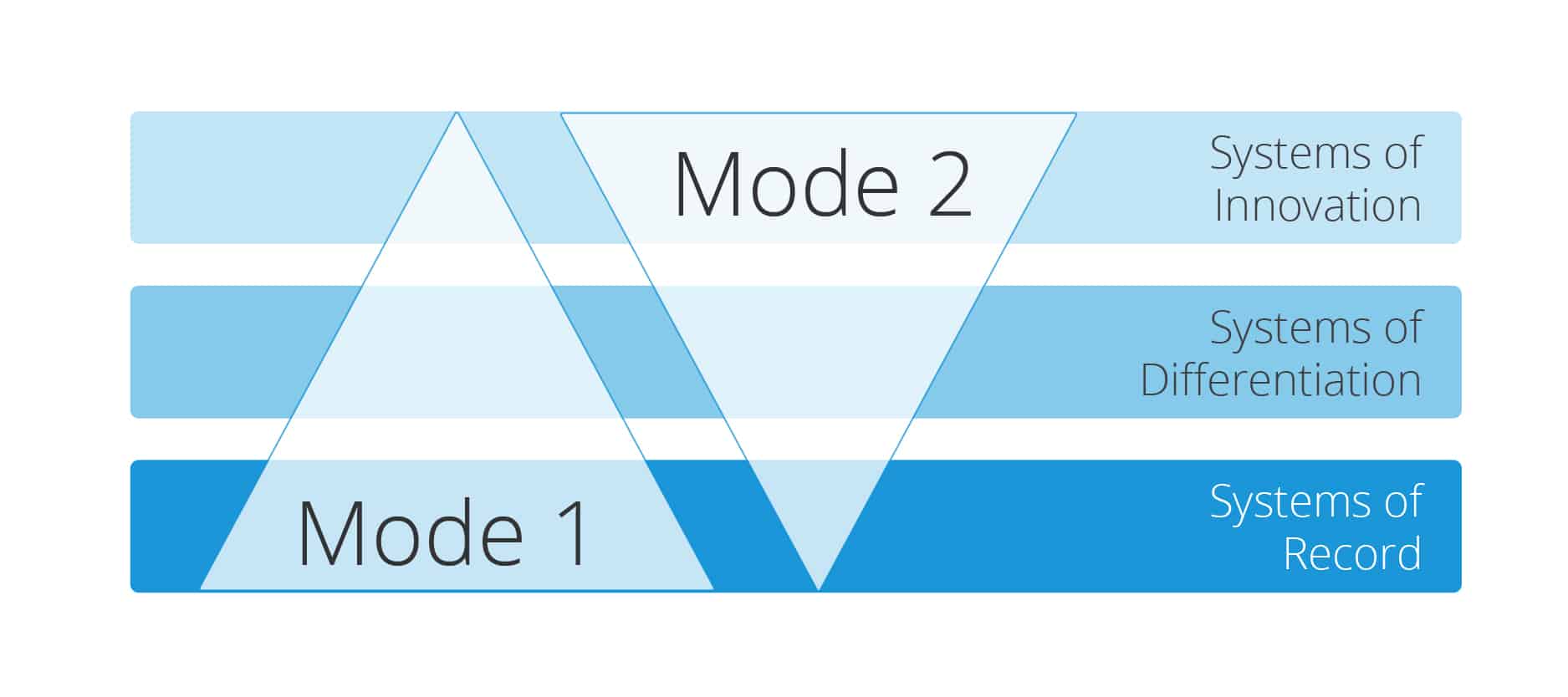In the days of old, when businesses were bold, and low-code hadn’t been invented, a quandary often faced was whether to buy or to build software applications. The logic behind which route was best is assisted by IT analyst Gartner in its Pace Layer model. It classifies the application architectures of an enterprise into three layers: Systems of Record, Systems of Differentiation and Systems of Innovation.

Systems of Record are necessary for the business simply to run (like financial reporting). Systems of Differentiation is where the success of a business hinges; operational processes, like supply chain and production management, and customer-facing areas like service provision, product sales, customer relationship management and support. Systems of Innovation reflect your developers’ ad-hoc experimentation, innovation and testing of ideas and prototypes.
Being better, faster and more efficient than your competitors is the domain of Systems of Differentiation. It’s in custom systems here that there lies the opportunity for an enterprise to wield competitive advantage.
Now it used to be that for systems of differentiation you had to choose between build or buy. To buy would be easy, but strip you of your uniqueness (differentiation lost). So given time, budget and skills, your preferred option was likely custom build. You analyzed your unique processes and your developers captured them in code, writing your applications. You might have fleetingly considered ‘buy and customize’ as an option, but severely customizing a rigid off-the-shelf package was recognized as dangerous territory fraught with risk and costs – and best avoided.
Out with ‘Build or Buy’
Today, with the build flexibility afforded by low-code development platforms, the world has moved on. Commercially available low-code based applications built on Mendix provide you with the ‘buy’ option of a working application. But you can today customize these to your exact specifications – quickly and affordably, at low risk.
In many areas, especially as regards systems of differentiation, pure ‘build or buy’ thinking is out-dated. Low-code based adaptive solutions are highly malleable and offer you new freedoms to customize, innovate and to differentiate.
In with the ‘Adaptive Solutions’ Era
Applications built by Mendix Industry Solutions fit this new era. We call such applications ‘Adaptive Solutions.’ For example, customers of our Mendix FSM (Field Service Management software) unit can take the fully functioning application for scheduling field service engineering jobs and adapt it to accommodate the unique processes they have created to best serve their customers. It’s the same with our other industry solutions.
Since applications from Mendix Industry Solutions follow the Adaptive Solutions philosophy, not only can organizations carry their process creativity and uniqueness through digital transformation initiatives, but they can continue to adapt these applications as their business needs and ideas evolve.
Beyond application adaptability, low-code based applications offer other big benefits too. For example, while traditionally coded applications require professional developers for development work, low-code based applications widen the developer pool to include technically savvy business team members. These folks have expert knowledge of every aspect of your processes and know exactly what they want, but have limited developer experience. With guidance, these extra developers help you overcome skills bottlenecks and can help you customize Adaptive Solution applications quickly and affordably as part of a fusion team.
Makes sense?
The use of Adaptive Solutions helps firms to be digitally nimble and express their competitive edge to market. Above all, an Adaptive Solution environment allows firms to continue to leverage advantage from innovation rather than be locked into stagnation by the digital inflexibility of ‘buy’ or the costs, complexity, timescales and risks of ‘build.’
Sure, build or buy is still the limit of choice for some applications. But in many cases, especially for systems of differentiation, Adaptive Solutions make sense!
What do you think? Do let us know.

